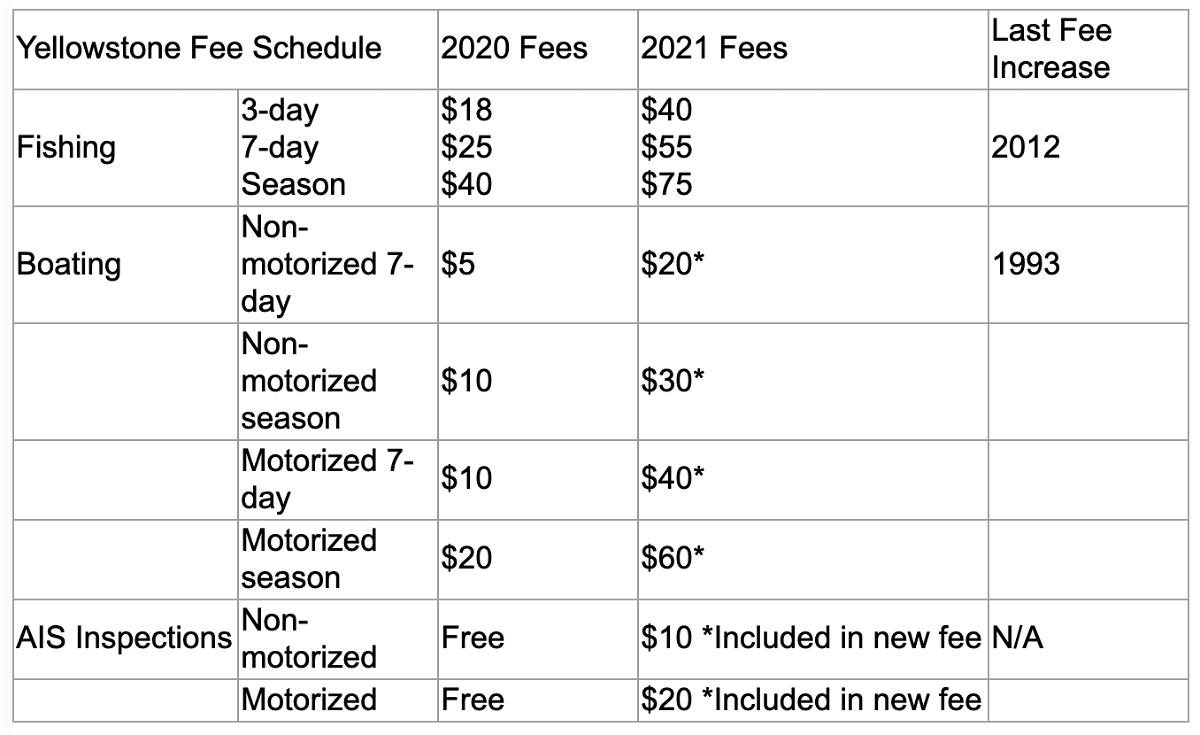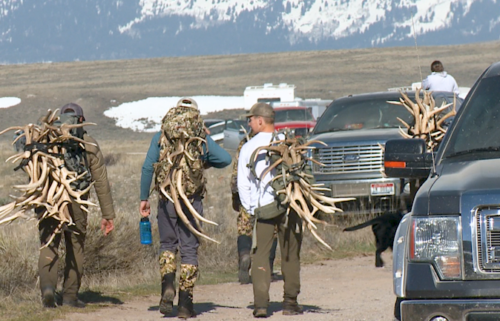Yellowstone announces fee increases to fishing and boating permits
MAMMOTH HOT SPRINGS, Wyo. (KIF) – Fees for fishing and boating permits in Yellowstone National Park increased Wednesday.
Anglers will be able to purchase fishing permits online for the upcoming season in addition to in-park stores and surrounding communities beginning this spring.
See Yellowstone’s fee schedule below for details:

Fishing permit details
- The new online system will enable anglers to plan ahead and have their fishing permits before arrival to the park.
- The new fees were determined by taking the average of resident and non-resident fishing permit fees from Wyoming, Montana, and Idaho. The Recreation.gov fee is also included.
- The cost of a fishing permit has not changed since 2012.
Boating permit details
- Boaters can obtain a permit and aquatic invasive species (AIS) inspection ONLY in-person at various locations in the park. Permits are not available online.
- The new fees are comparable to those of state and other national park permits.
- In addition, the permit fee will include an AIS fee for inspections.
- The cost of a boating permit has not changed since 1993.
- The number of boats on Yellowstone Lake increased nearly 10% in 2020.
The resulting increase in revenue from the fee increases will guarantee funding and provide a sustained revenue source that will contribute to continued efforts to reduce nonnative lake trout and increase the park’s aquatic invasive species (AIS) inspection capacity.
"We continue to make substantial progress in our native fish restoration efforts in Yellowstone Lake and many other areas of the park," said Superintendent Cam Sholly. "Efforts to restore native fish in Yellowstone Lake remain one of our highest conservation priorities. Our continued success will be largely dependent on a permanent and reliable revenue stream that will not only help us continue our native fish restoration efforts, but also increase our capacity to detect and prevent new nonnative species from entering Yellowstone's waters. We very much appreciate the many partners and supporters, like Trout Unlimited and Yellowstone Forever, who have helped us make substantial progress in this critical area over past years."
Last year, the park identified major financial shortfalls in its ability to prevent and reduce AIS affecting fisheries across the park, especially in Yellowstone Lake. Efforts to protect and recover native fish and restore the Yellowstone Lake ecosystem costs the park nearly $3 million annually. Scientists estimate another five years of sustained effort is needed at that investment level to achieve the park’s goals of native Yellowstone cutthroat trout restoration and AIS prevention, early detection and eradication.






